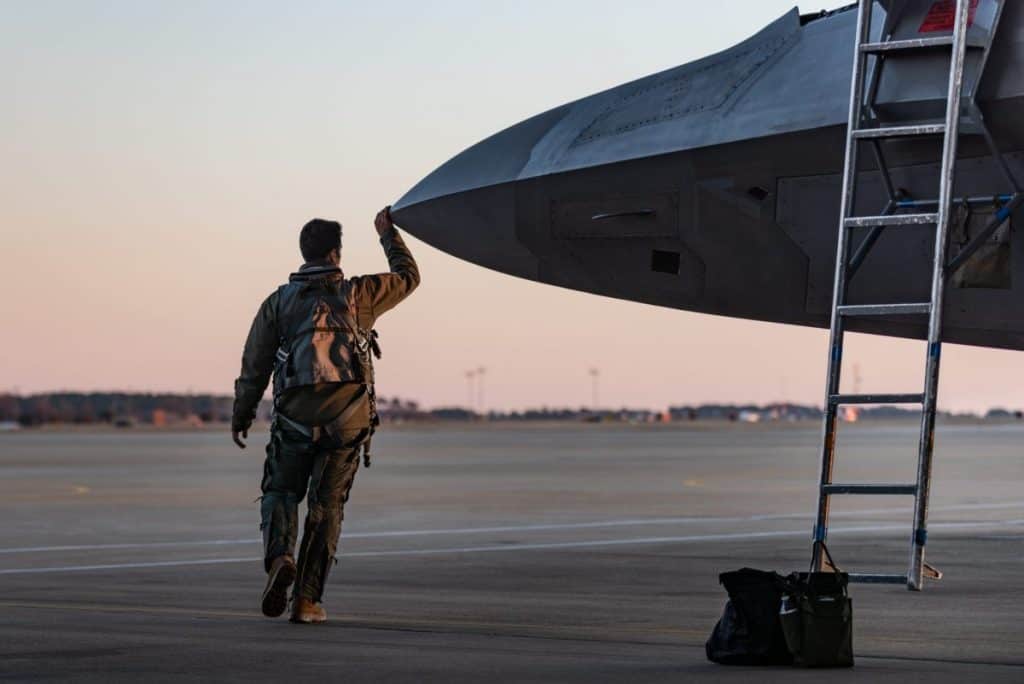5 Tips to Help You Succeed in the Rated Pilot Interview

Most active duty pilots have never sat through a formal interview in their life—they went straight from the Academy or ROTC to pilot training. Now, at the age of 35, they are trying to figure out something that most professionals learned when they left college in their mid-20’s: the importance of interview prep.
As is often the case in aviation, the best way to learn is from the mistakes made by other pilots. Here are five tips that will help you overcome the common mistakes witnessed during rated hiring boards and ultimately land you your dream Guard/Reserve gig.
1. The amount of preparation you put in—or lack thereof—is obvious!
Congratulations! Your resume, reputation, and network just got you an interview at your dream squadron. Unfortunately for you, however, there are nine other guys and gals with impressive backgrounds that got the invite too—and there are only three spots available. With those odds, do you feel comfortable just winging it in the interview? Or do you think this opportunity is worth a few nights of preparation to ensure that the board can’t say no?
If you assumed the latter was true for all applicants—that everyone arrived studied up and prepared—you might be surprised. There have been more than a few applicants who I assumed would nail the interview based on their impressive resume and reputation. But once it was revealed little to no effort went into preparation, the interview (and applicant’s chances) fell flat.
The simple fact is that you will be making a first impression on at least one member of the hiring board at this interview; you’d be surprised how the strong opinion of one board member can make or break your chances. So, here are a few easy ways to show them that you are absolutely the person they need in their squadron for the next decade:
- Know the basics of the squadron (e.g. ops tempo, alert, mission types, etc.)
- Be ready to explain how your unique background can help the squadron. Maybe you have a background in Test that will help the squadron transition to an upcoming weapons upgrade. Perhaps your multiple deployments to country X will become a vital resource for their upcoming deployment to the same region. The key here is to relate your experience to the target squadron.
- Make a list of common interview questions and think of the basic points you want to get across. Sometimes it helps to write the answers down.
- Record your practice answers into a phone or computer to see your facial expressions and mannerisms. Gauge the length of your answers; are you getting to the point or are you droning on a bit too long?
- Think about any skeletons in your closet and prepare to address them straight on. Emphasize what you learned as a result of the challenge and how the experience made you a better pilot and leader.
- Formal interview prep companies are expensive ($300+), but can be worth it—and you only have to pay for it once. A professional interview prep course can prepare you for airline interviews down the road as well.
- Continue to interact on the BogiDope forums to get your specific questions answered. Information is power!
2. Someone on the interview board should recognize your face.
Imagine that you are the CEO of a small business. You have been tasked with hiring an executive that is going to work within your company for the next 8-10 years. Someday, they might even be in a position to take it over. Would you want to meet that person face-to-face at some point before you offered them the job?
Of course! That logic applies to hiring pilots, too.
It is understood that many of the pilots interviewing are stationed overseas or can’t physically make it to the interview due to other competing priorities. Although it will always be advantageous to interview in person, I’d say about 50% of our interviews are conducted over the phone (see #3), which is completely fine. However, if you cannot physically make it to the interview, you should have at least visited the squadron at some point within the last two years.
Since you can’t predict if you’ll be able to physically attend an interview that hasn't been scheduled yet several years in advance, start scheduling opportunities to visit the squadrons on your short list now! If you are within two years of separating, plan out a road trip for the next time you’re in the country and visit as many of these units as you can. Take your spouse! Getting your other half involved in the process will help make the change a smooth transition for your family—and who doesn’t like a road trip?
It may seem expensive and a lot of work, but then again, it’s for the next 8-10 years of your life! It’s worth the effort to make an informed decision. If that’s not enough motivation, just remember that the majority of the guys interviewing have visited the squadron. Don’t be a faceless name on a resume that nobody recognizes.
3. If interviewing over the phone, prepare yourself for the lack of non-verbal cues.
Phone interviews are often required and are almost always awkward. Imagine that you just completed an answer and the other end of the phone is completely silent. Are they still listening? Do they understand what you’re saying? Should you keep talking? Are you talking too much? This doubt naturally creeps in due to the lack of non-verbal communication signals.
That nod, smile, yawn, and eye contact the interviewers give you can tell you a lot. For example, a nod can reinforce that they understand what you’re saying while shifting eye brows may indicate that they are confused or that they disagree. We use these subtle cues constantly in our daily lives, which is why an interview over the phone and the subsequent lack of non-verbal cues can sometimes throw people off.
Here are some basic techniques for combatting this awkwardness:
- Keep all answers under 2-3 minutes.
- Have a note pad with some key points you want to address in front of you.
- Write notes, names, and anything else important on the same notepad during the interview to stay engaged.
- Talk with a smile. I know it sounds cheesy, but it helps your voice sound energetic and upbeat as opposed to monotone and boring.
4. Posture, language and appearance matter regardless of how comfortable you are.







